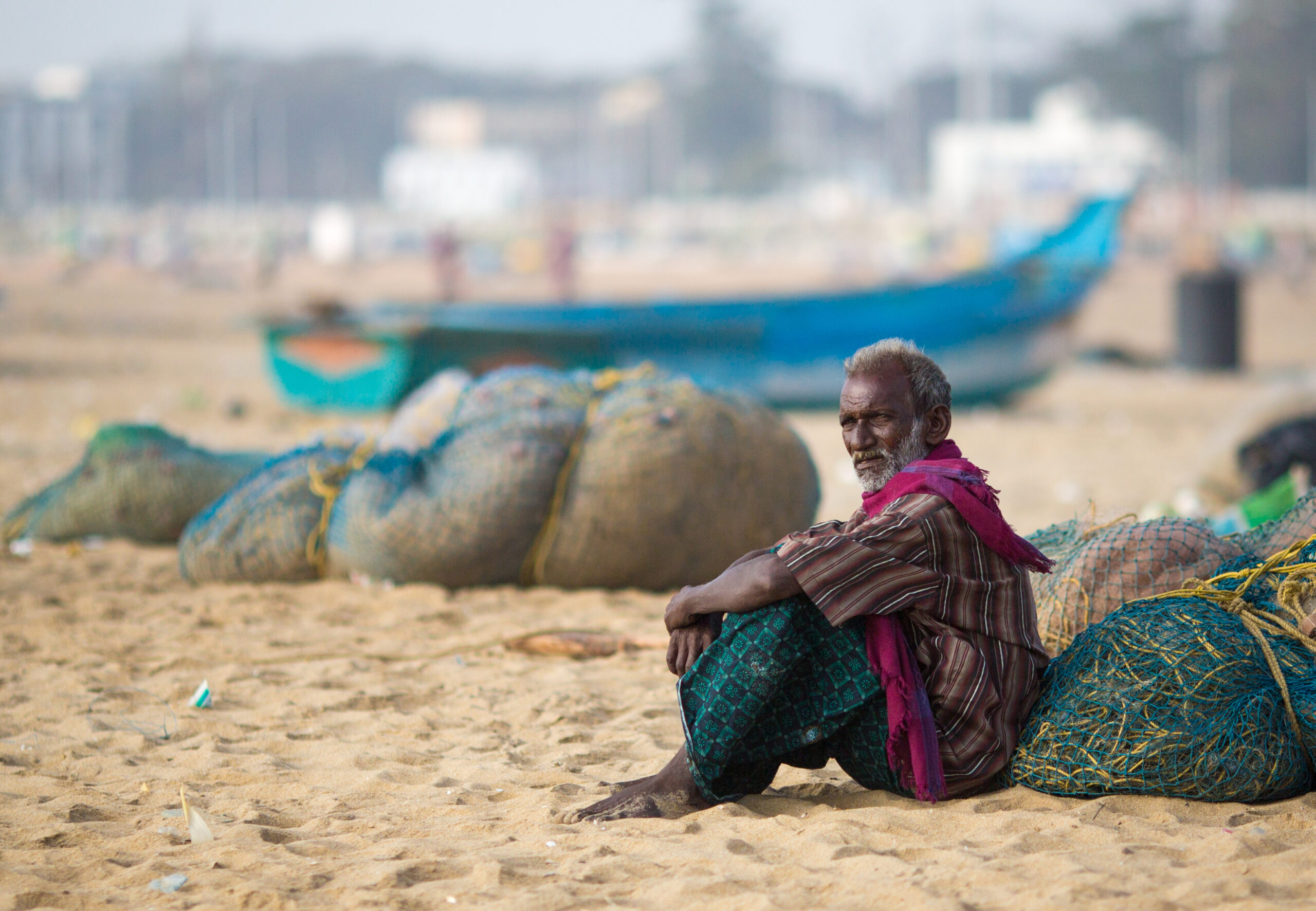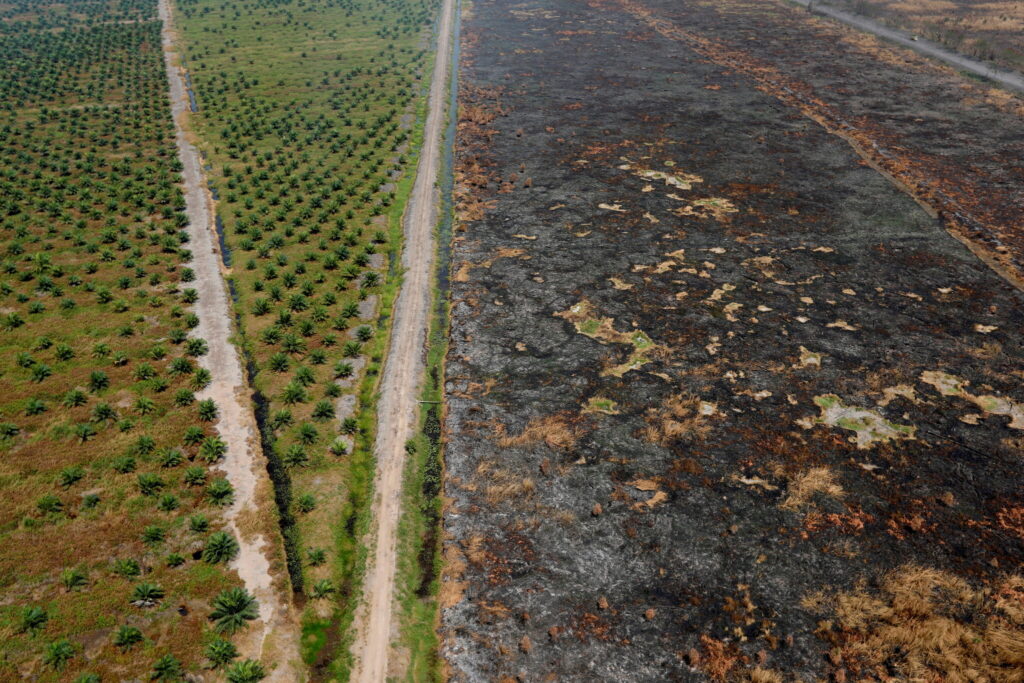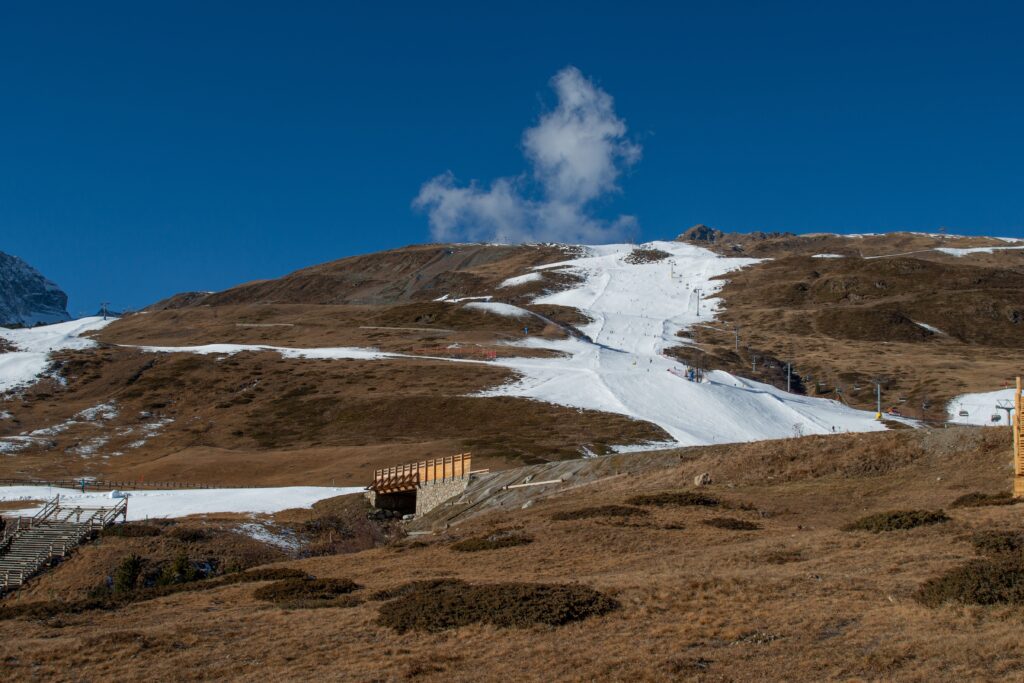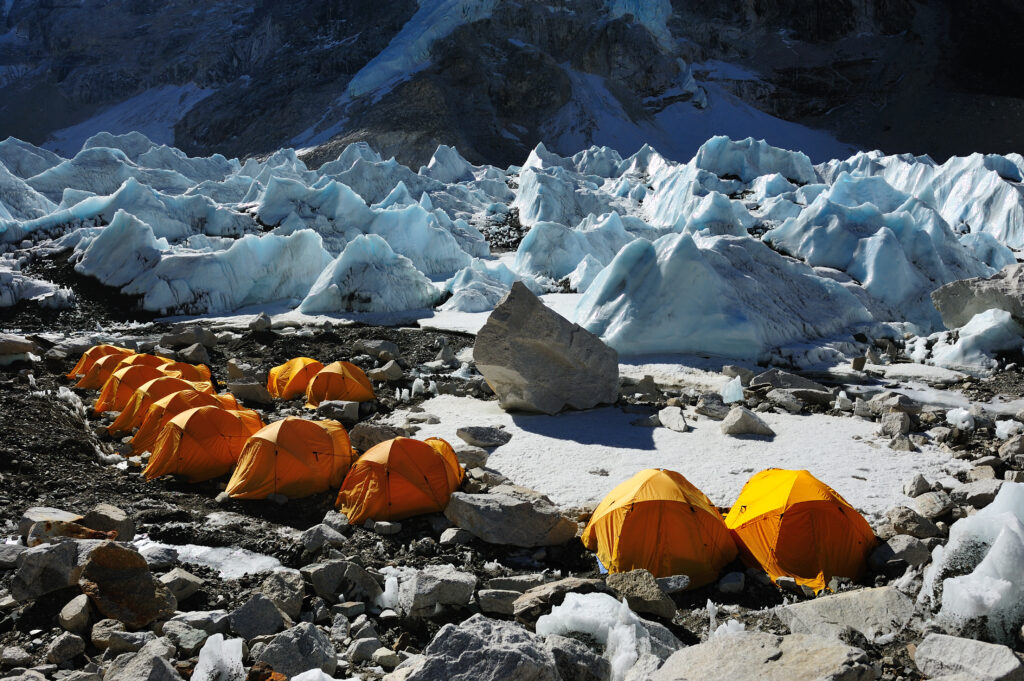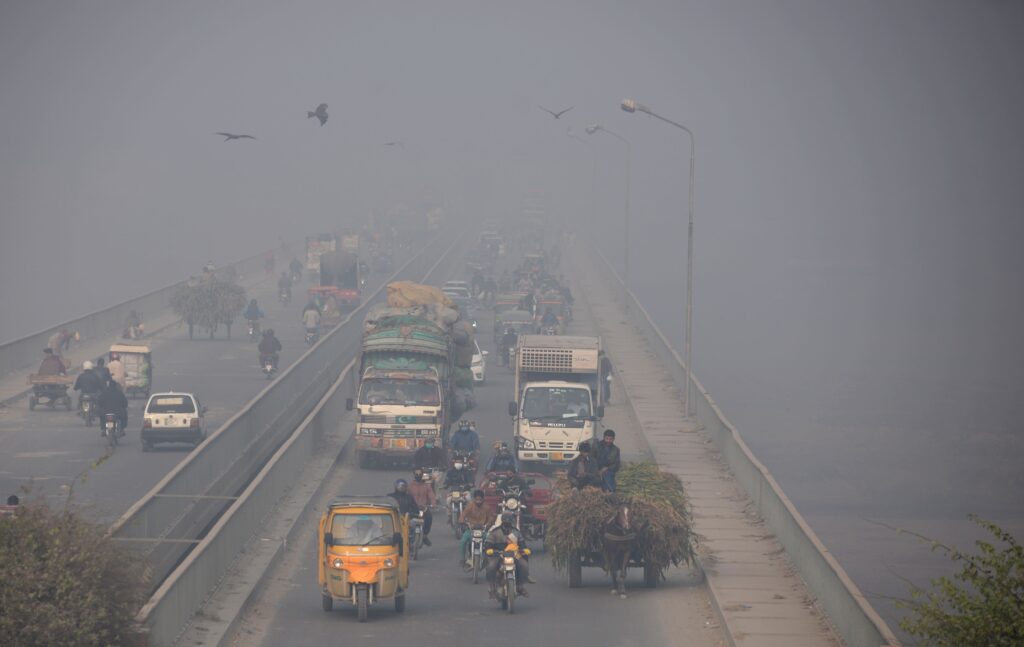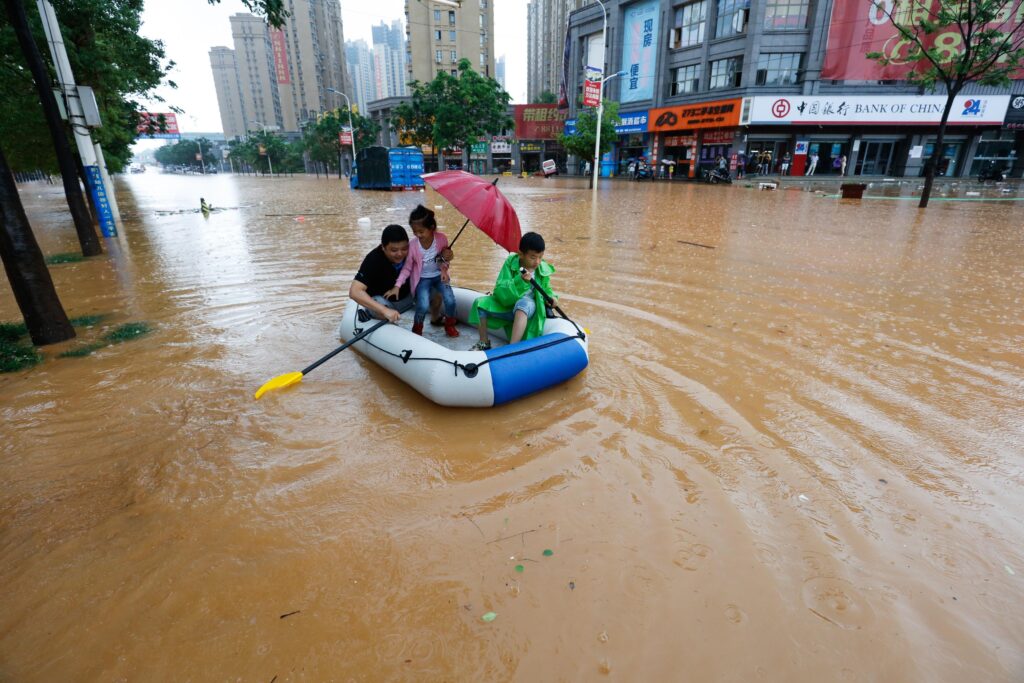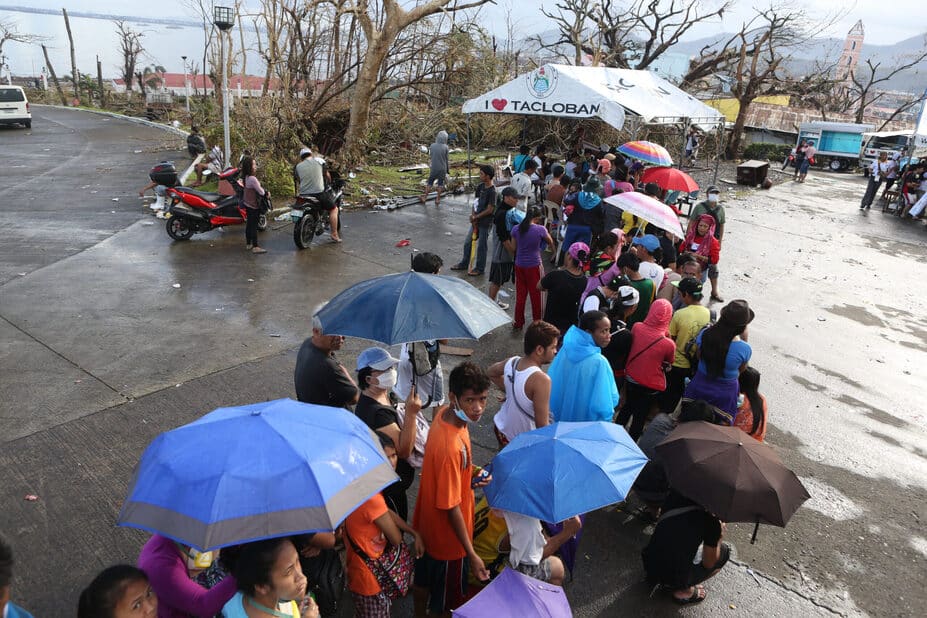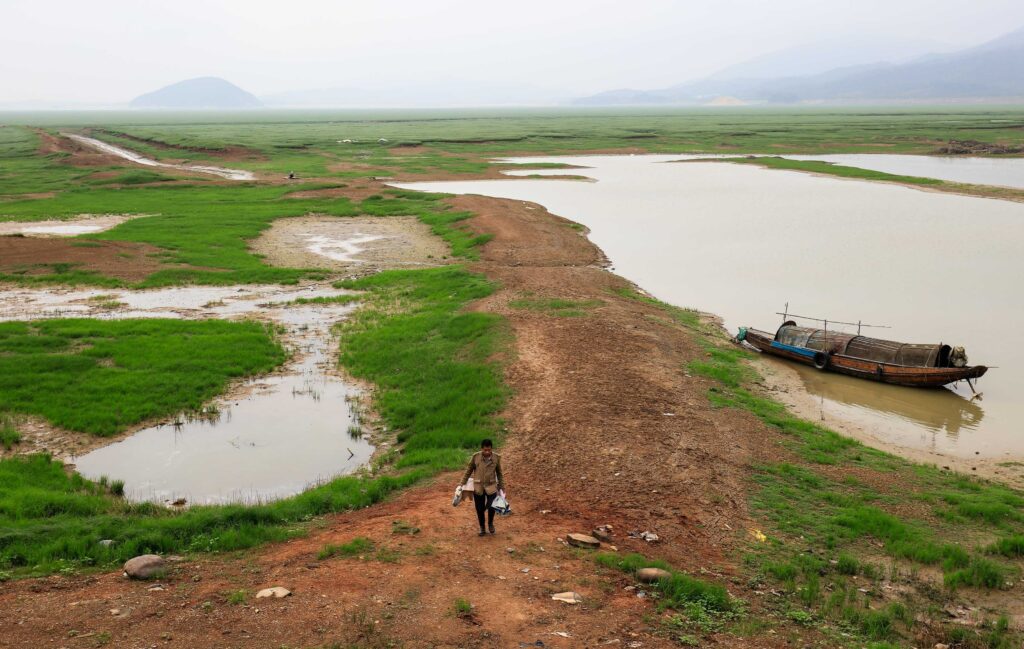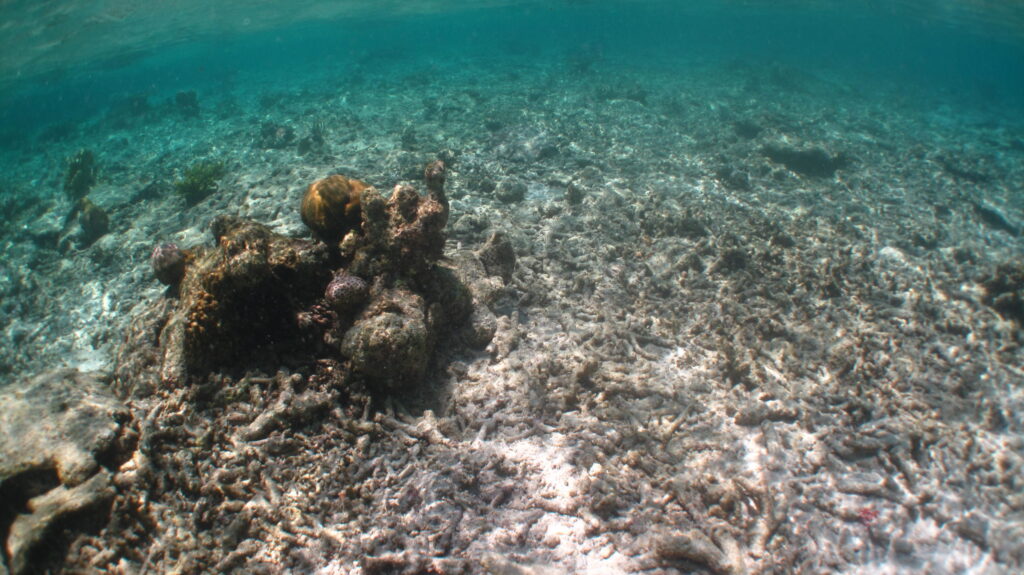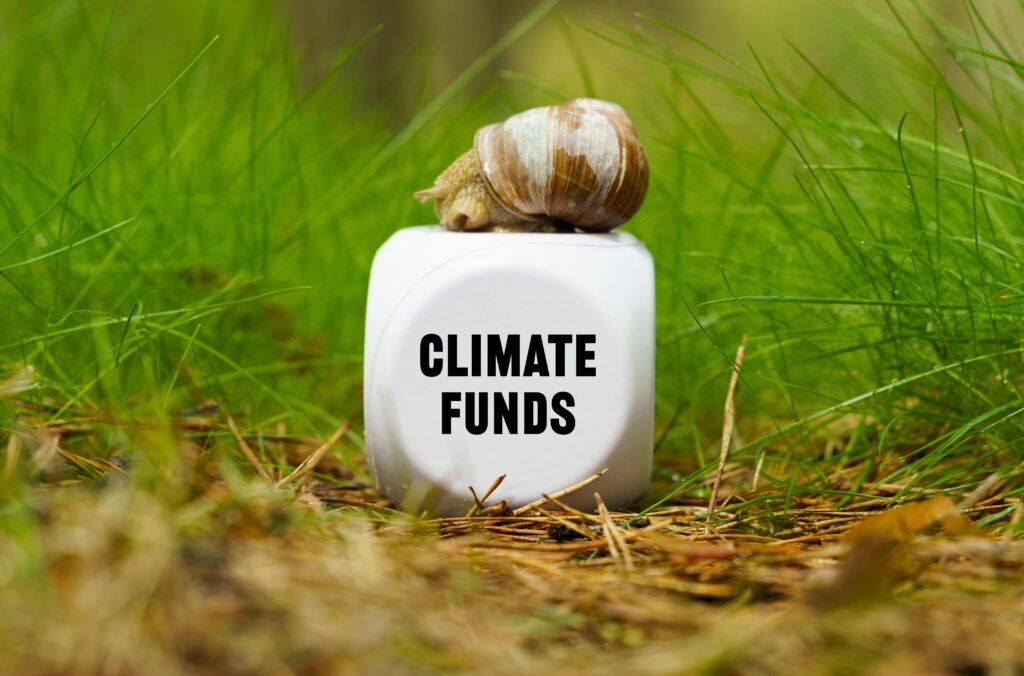Lined faces and rough hands are trademarks of a life lived at sea. Palayam, a 59-year-old fisherman who lives in the coastal city of Chennai in India’s southeast, is no different. Throughout his life, he has become accustomed to a steady seafood diet. The ocean’s riches also provided his family with enough to sell on the market and enough to provide an income.
“We were eating seafood at least five to six times a week,” Palayam said, reminiscing on the past. “Only after the family was fed, was the remaining catch taken to the market to sell. We were content and earned enough.”
But since Palayam’s childhood, the ocean has changed, and within his lifetime, he has witnessed a spectacle never thought possible – one where the seemingly limitless bounty of the ocean is slowly vanishing.
“On some days [today], I even come back with nothing worth selling,” he said, adding that he could barely recall the last time he ate seafood. Compared to the past, seafood has become a rarity. For families like Palayam’s, his children’s diets have barely seen proteins sourced from the seas – mostly only vegetables and eggs. Fish species that Palayam’s grandfather caught with ease, like the Malabar kingfish, seer fish, silver pomfret and king crab, are now slowly disappearing. Even if they are available at the markets, for families like Palayam’s, they are prohibitively expensive – similar to meats like mutton and chicken.
Even a decade ago, according to Palayam, fish stocks were much more abundant around Chennai. “I would be able to get at least 10 kilos of Kaala fish [Indian salmon] where the river meets the sea, but now getting even two kilos is considered a jackpot,” he said.
How Has the Changing Ocean Impacted Fishing in India?
Fishermen aren’t the only ones noticing that the ocean is changing. Suppliers to restaurants and hotels are beginning to feel the pinch of diminishing stocks, affecting everything from business to how menus are structured.
Vijay Kumar, the owner of a seafood contractor that supplies seafood to hotels across Chennai, says that it’s not only the volume that is decreasing but the variety too. He says that he used to receive six types of prawns in the past, but today only three have become regulars. The same goes for other species, like mussels and lobsters.
“I don’t know what has happened,” said Kumar. “Have we eaten too much? Is it pollution or is it climate change? The fish have gone very deep into the sea and they seem to be moving to colder waters. Fish that we would get near the surface before are now getting caught in nets meant for deep sea fish.”
Climate Change and the Responses from Fish Expanding into New Habitats
Indeed, the evidence that fish are moving to deeper, cooler waters is growing. The change is not just happening in the seas off Chennai but is somewhat of a global trend where fish habitats are shifting in response to ocean warming from climate change’s impacts. Adding to this, says Dr. E. Vivekanandan – the former principal scientist at the Central Marine Fisheries and Research Institute (CMFRI) – unsustainable fishing and habitat degradation are exacerbating climate change-related issues like warming oceans. Together, he adds, fish species are constantly attempting to find more favourable habitats.
Studies from CMFRI back this up. They found that certain fish species have been searching for new habitats in line with ocean warming trends over the last two decades. For example, between 1985 and 1989, only 2% of mackerel were caught in bottom trawlers, with the rest caught on drift gillnets near the surface. But between 2003 and 2007, around 15% of mackerel was caught by bottom trawlers off the Indian coast.
Elsewhere in the world, species are also responding to warm waters and expanding their ranges. For example, lobsters in Canada are now moving up along the country’s eastern seaboard following cooler waters. In technical speak, this movement of species due to warmer conditions is labelled as the tropicalisation of temperate ecosystems.
The Impacts of Overfishing and Climate Change on the Indian Fishing Industry
Combined with overfishing, which doesn’t allow fish to reach maturity and reproduce to replenish stocks, warmer waters from climate change present a deadly combination. This is not only hitting individuals like Palayam but extends to luxury hotels on the other end of the economic spectrum. Handling seafood supplies for Chennai’s luxury hotel The Park, D Shankar says that fish sizes are increasingly not the right size for the hotel’s menu. “We need 400 to 500 grams of fish to present to our chefs, but we don’t get the grammages. When asked, vendors just put their hands up in the air and blame climate change,” said Mr. Shankar.
The observations of the luxury hotel industry are similar to that of fishermen like Palayam. Mr. Shankar also laments that Indian Salmon, if he can ever get it, is now also smaller in size. This echoes fishermen like Palayam’s observation by which a two-kilo catch is now considered a jackpot compared to an easy 10 kilos a decade ago.
There are no easy answers for the dwindling fish stock in the waters around Chennai. When climate change is concerned, nothing but a total reduction in carbon emissions would see ocean warming come to a halt. Tackling illegal fishing and regulating the amount caught with good oversight, however, would be a good start to see fish numbers rebound from levels that teeter with extinction. This has been done with success elsewhere. Stories from fishermen like Palayam are a mere glimpse into a future where his situation will no longer be unique. He is likely to become another statistic in a fast-emptying ocean, not just in Chennai but across India and the globe.
Ashley Crowther
Writer, Australia
Ashley has reported on and photographed key stories on climate change, social development and other issues throughout Asia for nearly a decade. His work has been commissioned and appeared in publications such as the Financial Times, Vice, Marie Claire, The Guardian and more, and NGOs including the UN Foundation. He is the author and lead photographer in Our Dark Materials: Black Carbon & the Himalayas and was part of the team that won The Society of Publishers in Asia (SOPA) award for Excellence in Human Rights Reporting in 2022.
Ashley has reported on and photographed key stories on climate change, social development and other issues throughout Asia for nearly a decade. His work has been commissioned and appeared in publications such as the Financial Times, Vice, Marie Claire, The Guardian and more, and NGOs including the UN Foundation. He is the author and lead photographer in Our Dark Materials: Black Carbon & the Himalayas and was part of the team that won The Society of Publishers in Asia (SOPA) award for Excellence in Human Rights Reporting in 2022.

